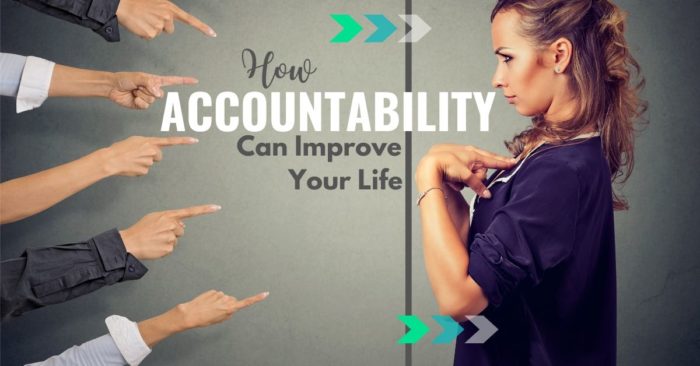How Accountable Are You? A Professional Reflection on Our Actions and Inactions

“Accountability is the bridge between intention and action; it transforms promises into results and dreams into reality.”
Accountability is a term frequently mentioned yet seldom fully understood. It carries significant weight, particularly when we pause to reflect on its impact in both our personal and professional lives. But, have we ever asked ourselves, “How accountable am I?”—not only in the eyes of others, but in the quiet, unspoken judgments we pass on ourselves? This question pushes us beyond superficial evaluations, inviting us to examine how our actions—or lack thereof—affect the trajectory of our lives and those around us.

Defining Accountability
At its core, accountability is the obligation to accept responsibility for one’s actions and decisions, both positive and negative. It transcends mere acknowledgment of success or failure; it is the willingness to answer for the consequences of your choices. In professional environments, accountability is often linked with performance metrics and deliverables, but on a deeper level, it encompasses personal integrity and ethical behavior. It demands transparency and consistency, traits that are not only appreciated by others but vital for self-respect.
Daily Accountability: Small Acts, Big Impact
How, then, can we ensure accountability becomes a daily practice rather than an afterthought? It starts with self-awareness. Accountability in daily dealings requires an honest assessment of our behavior, decisions, and reactions. We must ask: Did I uphold my commitments today? Did I respond to challenges with integrity? This self-interrogation may be uncomfortable, but it is necessary. Success in accountability doesn’t lie in perfection but in progress. The small actions we take today compound over time, shaping our future selves and our professional standing.
One practical step is to create systems of accountability—whether through setting clear goals or working with accountability partners who provide objective feedback. These measures ensure that our intentions align with our actions. In professional environments, this might manifest as weekly check-ins, goal-setting frameworks, or progress reports, but in personal contexts, it can be as simple as journaling or regular reflection. These structures push us to stay on course and avoid complacency.

The Benefits of Accountability
Why is accountability so important? For one, it fosters trust. In professional settings, being accountable builds credibility. Colleagues, clients, and partners are more likely to rely on those who demonstrate consistent accountability. In personal relationships, it strengthens bonds, as it reassures others that you are dependable and trustworthy.
Additionally, accountability drives personal and professional growth. When we hold ourselves accountable, we become aware of our limitations and work to overcome them. This awareness leads to continuous improvement, pushing us to evolve and adapt in dynamic environments. Furthermore, accountability sharpens decision-making skills. When we know we will be held responsible for our actions, we think critically, weigh options, and choose paths that reflect both ethical standards and strategic goals.
Spiritually, accountability aligns us with a higher moral compass, particularly in the context of faith. Knowing that we are accountable not only to those around us but also to God transforms our approach to everyday decisions. We realize that every action has eternal significance, adding depth to our understanding of responsibility.
The Cost of Avoiding Accountability
However, the refusal to embrace accountability comes with a significant price. In professional spheres, a lack of accountability erodes trust and damages reputations. It can lead to missed opportunities, strained relationships, and, ultimately, career stagnation. Teams and organizations that fail to cultivate a culture of accountability often experience inefficiency, internal conflicts, and a breakdown in communication. Individuals who shy away from accountability risk becoming unreliable, losing the respect of their peers and missing out on opportunities for growth and advancement.
On a personal level, evading accountability leads to complacency. Without accountability, we often settle into a comfort zone, avoiding the challenges necessary for personal development. Over time, this avoidance accumulates, resulting in a sense of unfulfilled potential and missed opportunities for growth. Spiritually, the consequences are even greater. When we neglect our responsibility before God, we distance ourselves from His purpose for our lives, and this disconnection can lead to inner turmoil, guilt, and a sense of purposelessness.
Is It Too Late to Start?
For those wondering, Is it too late for me? the answer is a resounding no. Accountability is not a destination, but a journey. It’s never too late to realign your actions with your values and start holding yourself to a higher standard. Whether you’ve experienced lapses in personal integrity, professional shortcomings, or spiritual neglect, today offers a fresh opportunity to begin anew. Every step toward greater accountability is a step toward becoming the best version of yourself.
Moving Forward: A Call to Action
What, then, does true accountability look like in practice? It is rooted in consistency, transparency, and commitment. Start small, but remain faithful. Reflect daily on your actions, ask the hard questions, and be willing to accept feedback. Create systems that challenge you to remain accountable, whether through mentors, colleagues, or self-imposed benchmarks.
The rewards of accountability are not merely external. Yes, they improve relationships, build trust, and enhance performance, but more than that, accountability provides a sense of personal fulfillment and purpose. It keeps us grounded in the truth of who we are and who we aspire to become.

Final Reflection:
As we strive for a life of integrity, let us remember: “Accountability is the glue that ties commitment to results.” Whether in our careers, relationships, or spiritual walk, accountability demands that we act with purpose and conviction. It’s a journey that requires discipline but yields the unmatched reward of living a life aligned with our highest ideals.
So, ask yourself today—How accountable am I? The answer to that question holds the key to your growth, your success, and your legacy. Start now, because the only time too late to begin is when you choose never to start.




